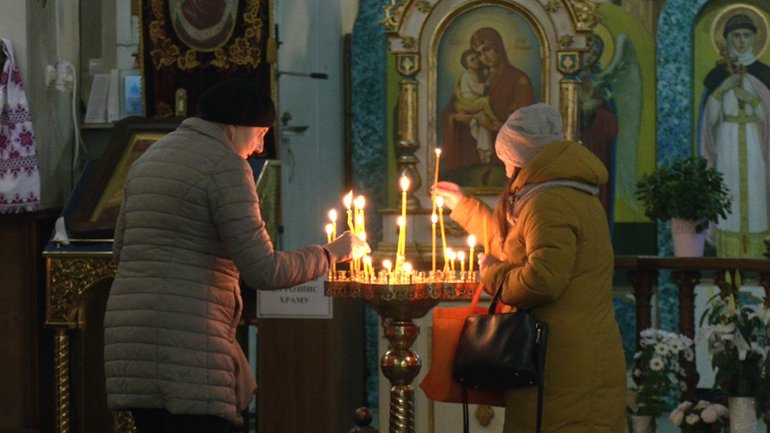A religious scholar explains why more Ukrainians now turn to religion

The survey was conducted by the Razumkov Center's sociological service in November 2022 using the face-to-face method. We interviewed 2,018 respondents aged 18 and older in regions controlled by Ukraine and where active military operations are not currently taking place.
The majority of Ukrainians, 59%, believe that the Church plays a positive role, and about a quarter believe that it does not play a noticeable role, and only 3.3% believe that the Church plays a negative role in the current situation.
The war aggravated the trends that were present, in particular, the level of religiosity. This trend was also traced in surveys of previous years, explains Vita Titarenko, doctor of Philosophy, Religious Scholar:
"When the level of religiosity of society increased during periods of social exacerbations, and in particular, if we recall 2014 and the Razumkov Center survey of that year, the level of religiosity of society reached 76%. Yes, there was a slight decline, in 2021 — 68%. And we see that during the war of Russia's aggression against Ukraine, there is a rise again, and the level of religiosity reaches 74%. That is, it is typical for people to turn to God, to turn to faith in times of exacerbations, crises, and unstable situations."
Vita Titarenko commented on the situation with religiosity during the Second World War.
"We remember that, in fact, the Russian Orthodox Church was created by Stalin in 1943. And again, if we throw parallels, we remember that the German trains went with belts that said "God is with us". That is, again, to what extent the level of such declared religiosity and inner faith coincided in those days, it is now difficult to say. I think that the parallels with that time are very relative today," the religious scholar noted.
Vita Titarenko emphasized that one of the indicators during the Razumkov Center survey inspired her. In particular, an increase in respondents who believe that the church should be nationally oriented.
"That is, there is an awareness of this need. Because, for example, in 2000, 53% were against the church being nationally oriented. This year, we see that the number of those who are against it has decreased to 32.5%, but almost 50% believe that the church should be nationally oriented," she commented.
An important point in the survey, the religious scholar also noted a large percentage of those who identify as citizens of Ukraine.
"Not by the commonality of their faith — this is about 4% looking for such a community, but as citizens of Ukraine, 73.5%. It seems we are all moving in the direction that our nation is becoming more monolithic, crystallizing in these dire conditions. I would like to draw your attention to the fact that these surveys used focus groups with open questions for the first time and very sensitive questions about the status of the UOC, its position, we see in the disclosed questions," Vita Titarenko said.
But, he says that in the surveys of the Razumkov Center there were no comparisons of different authorities, the rating, relatively speaking, of the leaders of the largest churches in Ukraine, which was in previous studies. She suggested that this was done to avoid manipulation:
"There is also no confessional specifics. That is, there is no belonging to a confessional, it is so indirectly indicated somewhere. The only thing is that a larger number of believers belong to the OCU. But KIIS, which conducted its social studies in July, said that about 54% are faithful of the OCU, 14% simply call themselves Orthodox, while 4% affiliate with the Ukrainian Orthodox Church, which is still de facto in unity with the Moscow Patriarchate."
According to religious scholars, the readiness of believers and church members for changes after the war is also important.









